Stop And Observe Quotes & Sayings
Enjoy reading and share 19 famous quotes about Stop And Observe with everyone.
Top Stop And Observe Quotes
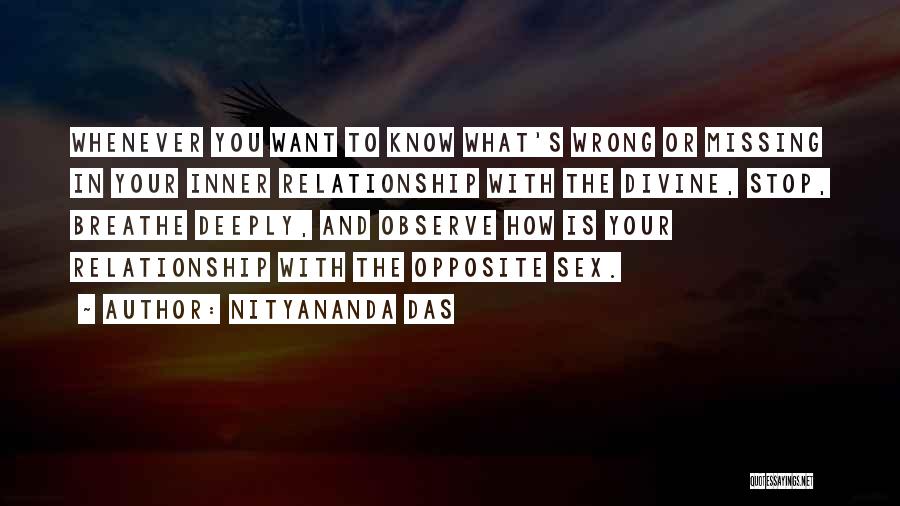
Whenever you want to know what's wrong or missing in your inner relationship with the Divine, stop, breathe deeply, and observe how is your relationship with the opposite sex. — Nityananda Das
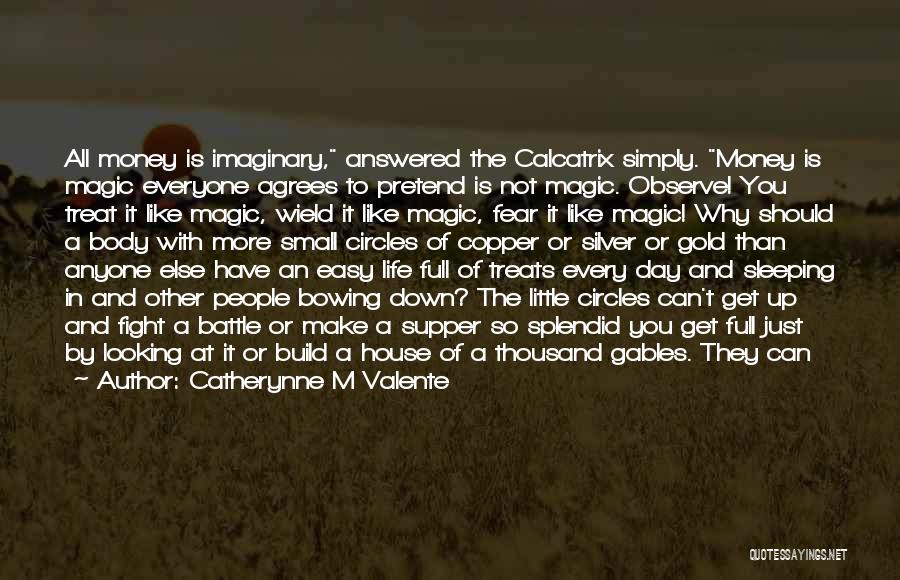
All money is imaginary," answered the Calcatrix simply. "Money is magic everyone agrees to pretend is not magic. Observe! You treat it like magic, wield it like magic, fear it like magic! Why should a body with more small circles of copper or silver or gold than anyone else have an easy life full of treats every day and sleeping in and other people bowing down? The little circles can't get up and fight a battle or make a supper so splendid you get full just by looking at it or build a house of a thousand gables. They can do those things because everyone agrees to give them power. If everyone agreed to stop giving power to pretty metals and started giving it to thumbnails or mushroom caps or roof shingles or first kisses or tears or hours or puffin feathers, those little circles would just lay there tarnishing in the rain and not making anyone bow their noses down to the ground or stick them up in the air. — Catherynne M Valente
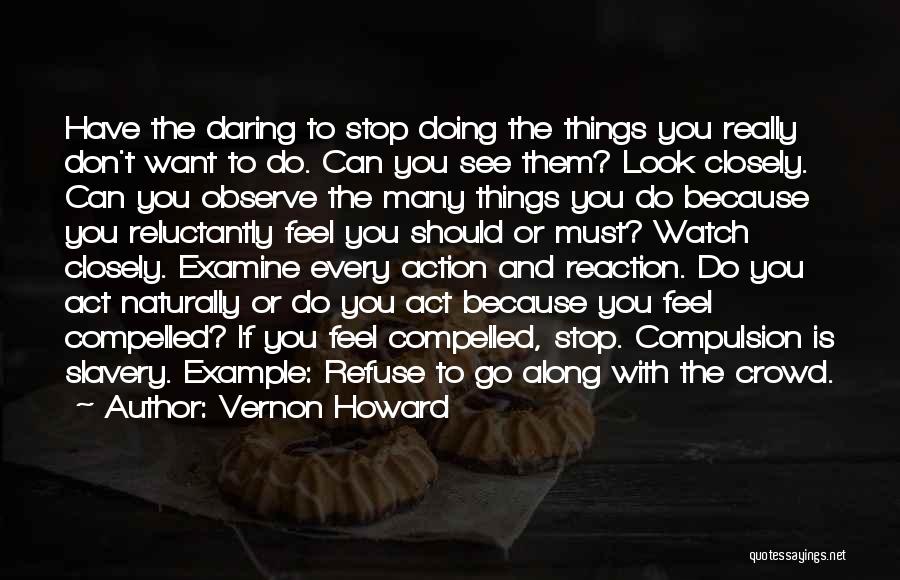
Have the daring to stop doing the things you really don't want to do. Can you see them? Look closely. Can you observe the many things you do because you reluctantly feel you should or must? Watch closely. Examine every action and reaction. Do you act naturally or do you act because you feel compelled? If you feel compelled, stop. Compulsion is slavery. Example: Refuse to go along with the crowd. — Vernon Howard
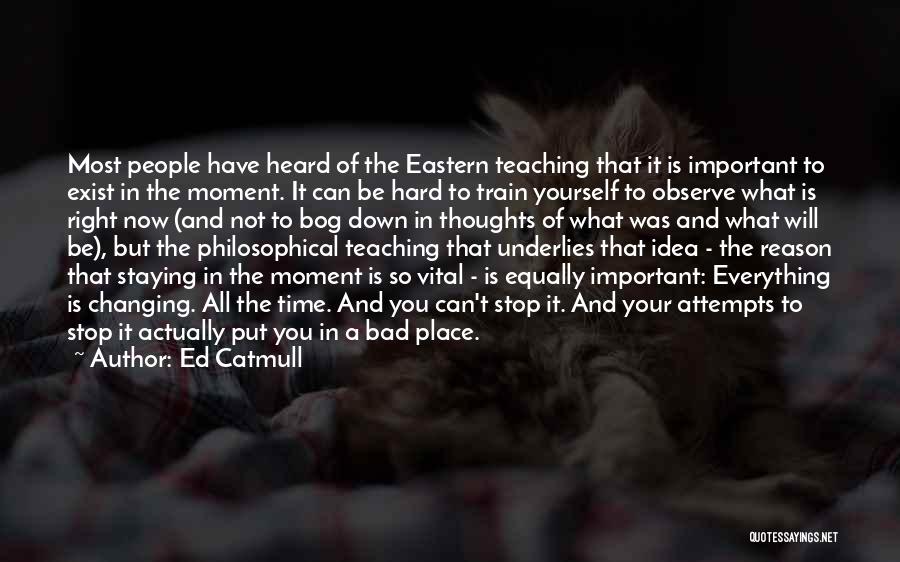
Most people have heard of the Eastern teaching that it is important to exist in the moment. It can be hard to train yourself to observe what is right now (and not to bog down in thoughts of what was and what will be), but the philosophical teaching that underlies that idea - the reason that staying in the moment is so vital - is equally important: Everything is changing. All the time. And you can't stop it. And your attempts to stop it actually put you in a bad place. — Ed Catmull
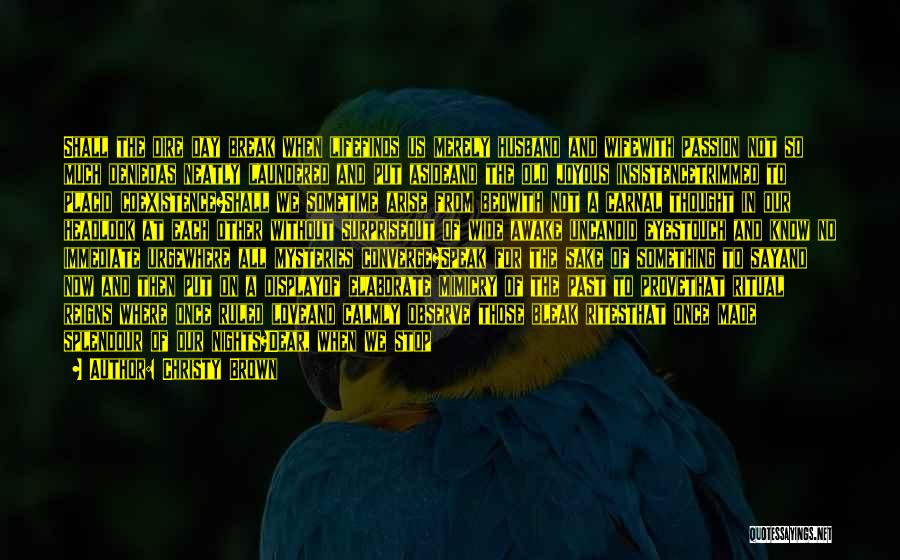
Shall the dire day break when life
finds us merely husband and wife
with passion not so much denied
as neatly laundered and put aside
and the old joyous insistence
trimmed to placid coexistence?
Shall we sometime arise from bed
with not a carnal thought in our head
look at each other without surprise
out of wide awake uncandid eyes
touch and know no immediate urge
where all mysteries converge?
Speak for the sake of something to say
and now and then put on a display
of elaborate mimicry of the past to prove
that ritual reigns where once ruled love
and calmly observe those bleak rites
that once made splendour of our nights?
Dear, when we stop being outrageous
and no longer find contagious
the innumerable ecstasies we find
in rise of hand or leap of mind -
not now or then, love, need we fear thus;
those two sad people will not be us. — Christy Brown
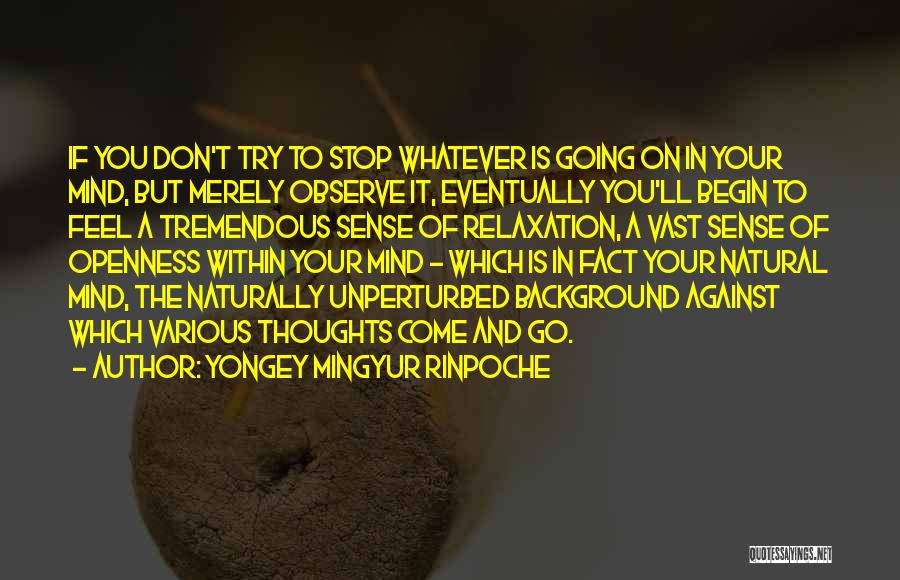
If you don't try to stop whatever is going on in your mind, but merely observe it, eventually you'll begin to feel a tremendous sense of relaxation, a vast sense of openness within your mind - which is in fact your natural mind, the naturally unperturbed background against which various thoughts come and go. — Yongey Mingyur Rinpoche
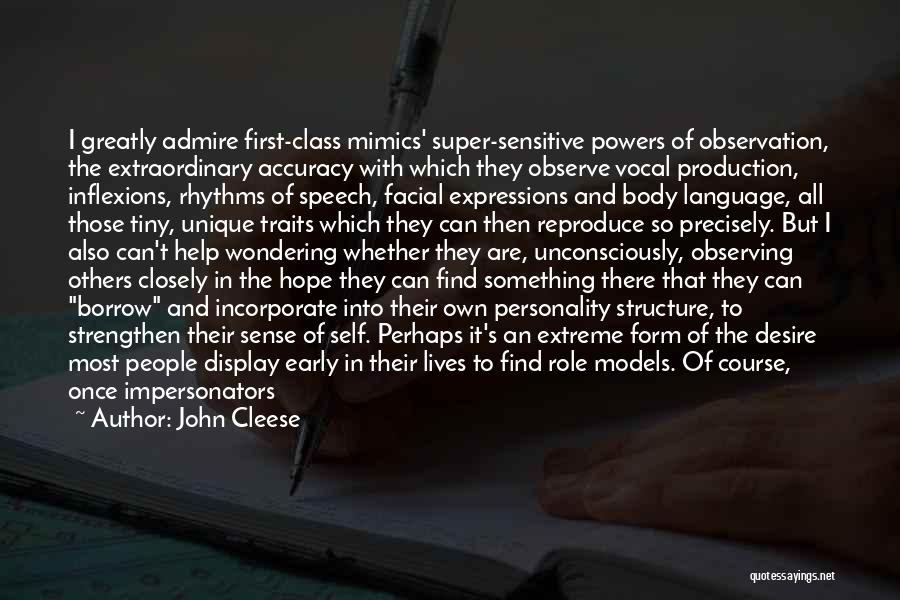
I greatly admire first-class mimics' super-sensitive powers of observation, the extraordinary accuracy with which they observe vocal production, inflexions, rhythms of speech, facial expressions and body language, all those tiny, unique traits which they can then reproduce so precisely. But I also can't help wondering whether they are, unconsciously, observing others closely in the hope they can find something there that they can "borrow" and incorporate into their own personality structure, to strengthen their sense of self. Perhaps it's an extreme form of the desire most people display early in their lives to find role models. Of course, once impersonators have developed this ability, they are rewarded by the delight they produce in an audience, whether they are at a party with friends, or earning a living on television, so they have no reason to stop, even though its original purpose has never really been accomplished. — John Cleese
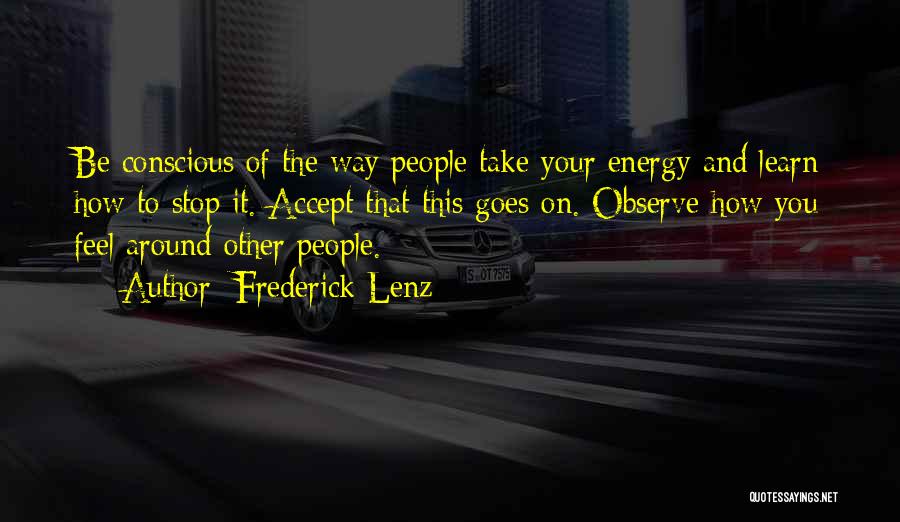
Be conscious of the way people take your energy and learn how to stop it. Accept that this goes on. Observe how you feel around other people. — Frederick Lenz
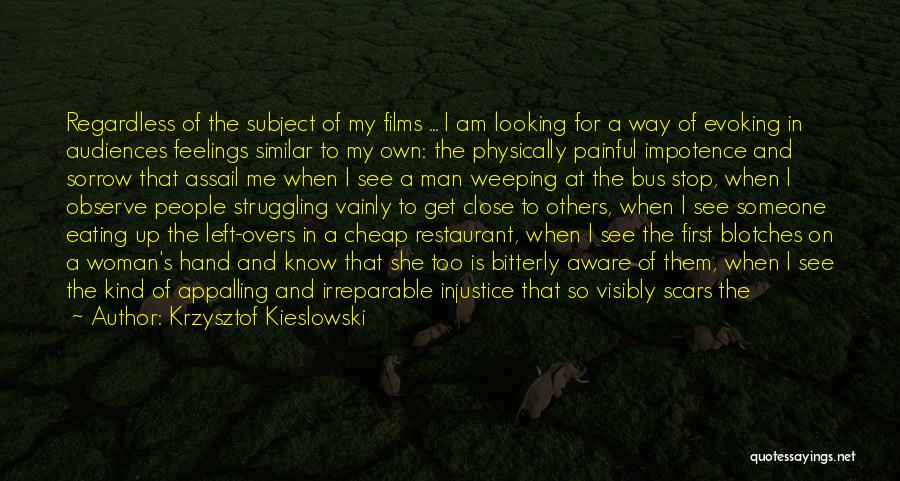
Regardless of the subject of my films ... I am looking for a way of evoking in audiences feelings similar to my own: the physically painful impotence and sorrow that assail me when I see a man weeping at the bus stop, when I observe people struggling vainly to get close to others, when I see someone eating up the left-overs in a cheap restaurant, when I see the first blotches on a woman's hand and know that she too is bitterly aware of them, when I see the kind of appalling and irreparable injustice that so visibly scars the human face. I want this pain to come across to my audience, to see this physical agony, which I think I am beginning to fathom, to seep into my work. — Krzysztof Kieslowski
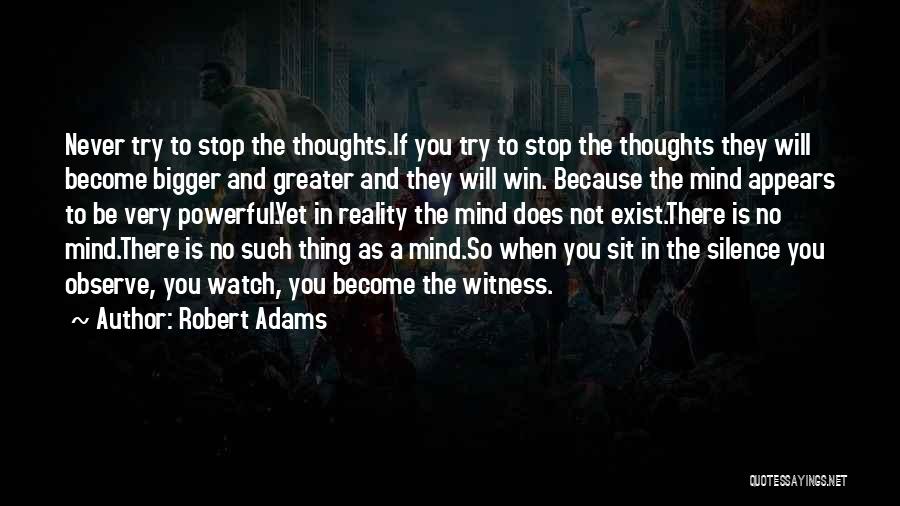
Never try to stop the thoughts.
If you try to stop the thoughts they will become bigger and greater and they will win. Because the mind appears to be very powerful.
Yet in reality the mind does not exist.
There is no mind.
There is no such thing as a mind.
So when you sit in the silence you observe, you watch, you become the witness. — Robert Adams
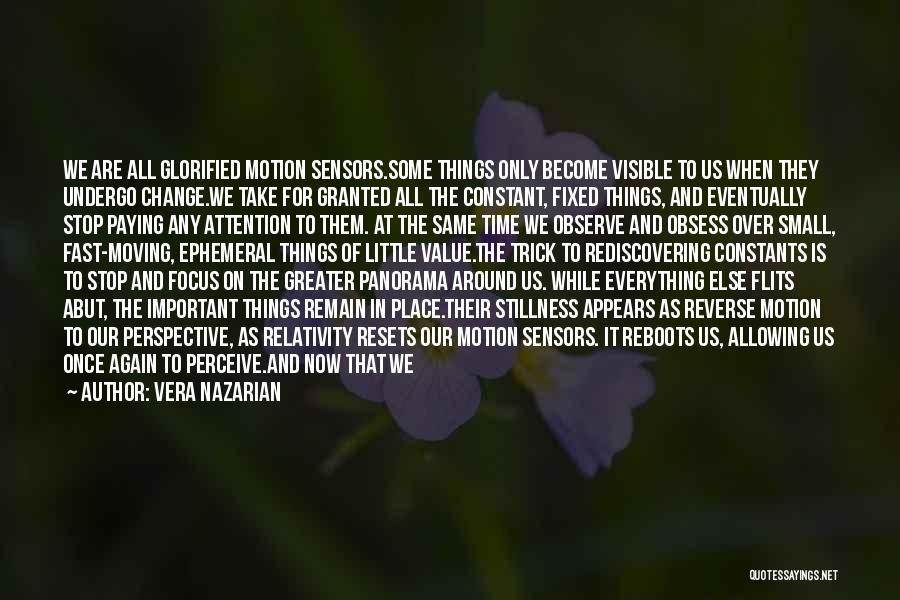
We are all glorified motion sensors.
Some things only become visible to us when they undergo change.
We take for granted all the constant, fixed things, and eventually stop paying any attention to them. At the same time we observe and obsess over small, fast-moving, ephemeral things of little value.
The trick to rediscovering constants is to stop and focus on the greater panorama around us. While everything else flits abut, the important things remain in place.
Their stillness appears as reverse motion to our perspective, as relativity resets our motion sensors. It reboots us, allowing us once again to perceive.
And now that we do see, suddenly we realize that those still things are not so motionless after all. They are simply gliding with slow individualistic grace against the backdrop of the immense universe.
And it takes a more sensitive motion instrument to track this. — Vera Nazarian
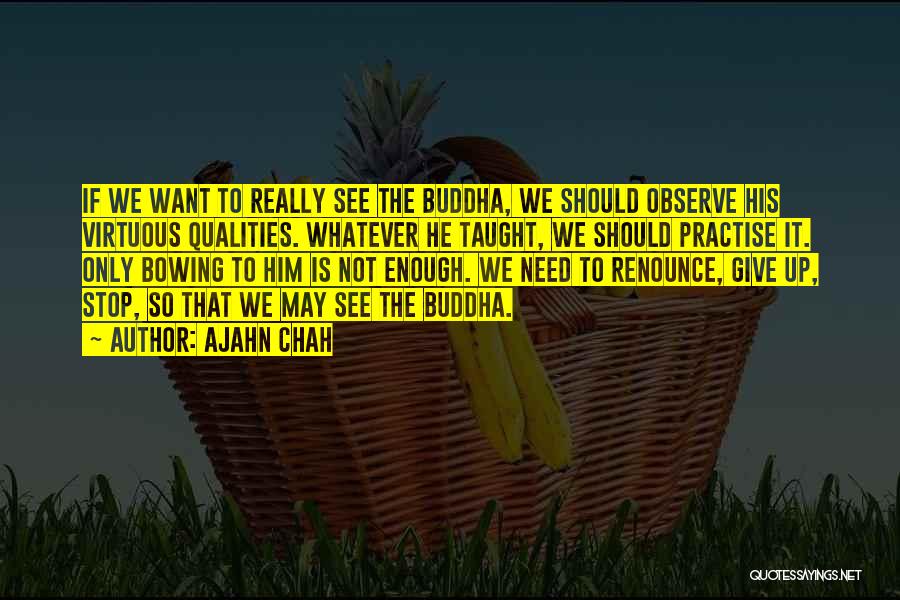
If we want to really see the Buddha, we should observe his virtuous qualities. Whatever he taught, we should practise it. Only bowing to him is not enough. We need to renounce, give up, stop, so that we may see the Buddha. — Ajahn Chah
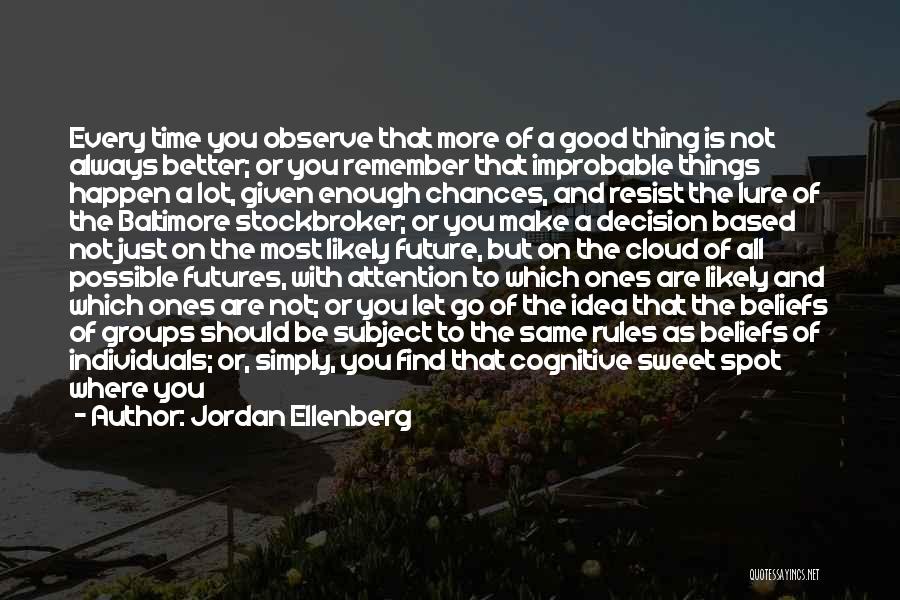
Every time you observe that more of a good thing is not always better; or you remember that improbable things happen a lot, given enough chances, and resist the lure of the Baltimore stockbroker; or you make a decision based not just on the most likely future, but on the cloud of all possible futures, with attention to which ones are likely and which ones are not; or you let go of the idea that the beliefs of groups should be subject to the same rules as beliefs of individuals; or, simply, you find that cognitive sweet spot where you can let your intuition run wild on the network of tracks formal reasoning makes for it; without writing down an equation or drawing a graph, you are doing mathematics, the extension of common sense by other means. When are you going to use it? You've been using mathematics since you were born and you'll probably never stop. Use it well. — Jordan Ellenberg
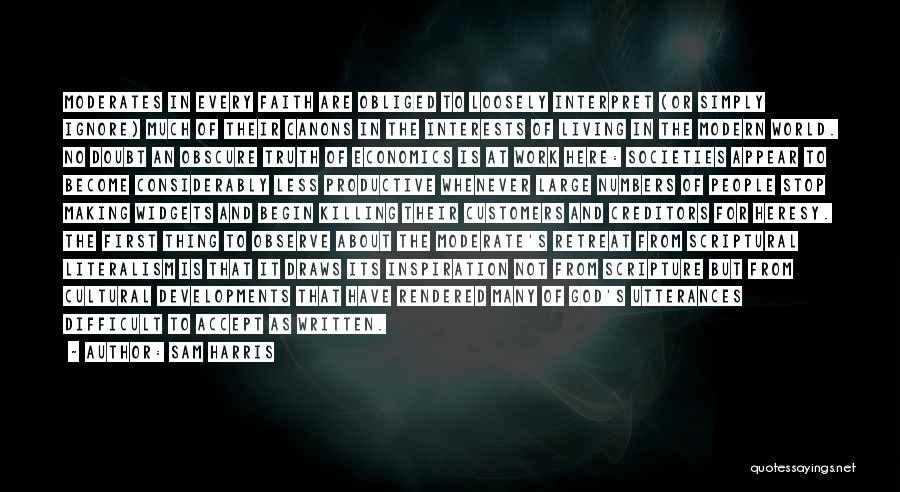
Moderates in every faith are obliged to loosely interpret (or simply ignore) much of their canons in the interests of living in the modern world. No doubt an obscure truth of economics is at work here: societies appear to become considerably less productive whenever large numbers of people stop making widgets and begin killing their customers and creditors for heresy. The first thing to observe about the moderate's retreat from scriptural literalism is that it draws its inspiration not from scripture but from cultural developments that have rendered many of God's utterances difficult to accept as written. — Sam Harris
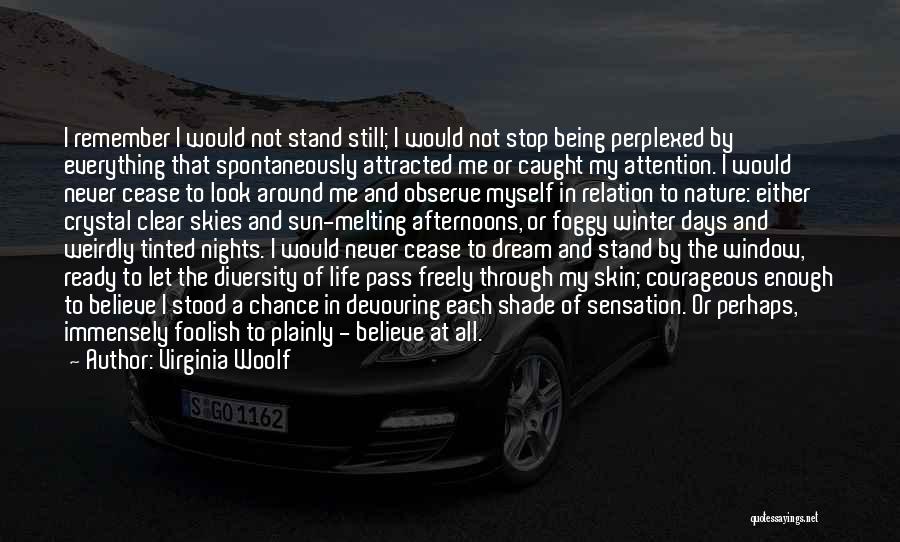
I remember I would not stand still; I would not stop being perplexed by everything that spontaneously attracted me or caught my attention. I would never cease to look around me and observe myself in relation to nature: either crystal clear skies and sun-melting afternoons, or foggy winter days and weirdly tinted nights. I would never cease to dream and stand by the window, ready to let the diversity of life pass freely through my skin; courageous enough to believe I stood a chance in devouring each shade of sensation. Or perhaps, immensely foolish to plainly - believe at all. — Virginia Woolf
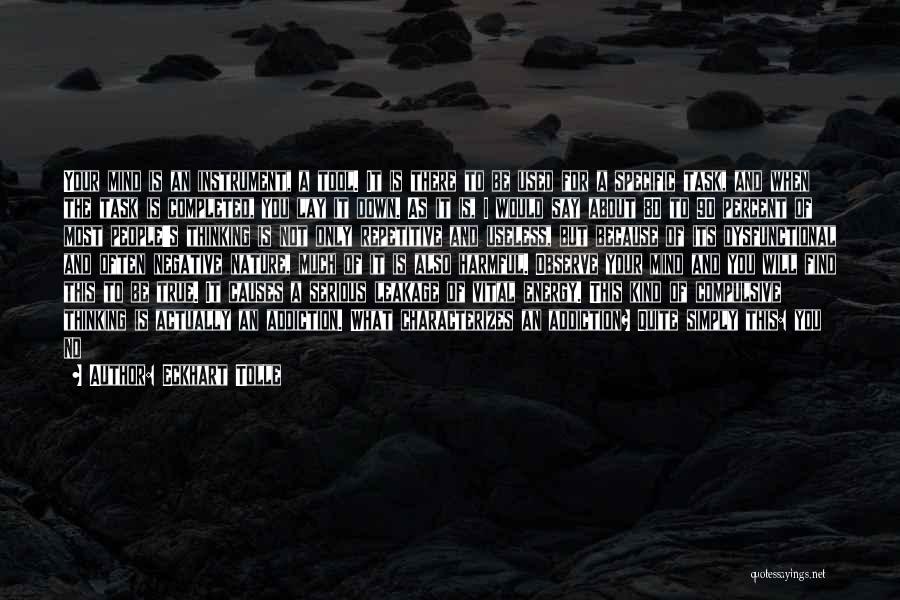
Your mind is an instrument, a tool. It is there to be used for a specific task, and when the task is completed, you lay it down. As it is, I would say about 80 to 90 percent of most people's thinking is not only repetitive and useless, but because of its dysfunctional and often negative nature, much of it is also harmful. Observe your mind and you will find this to be true. It causes a serious leakage of vital energy. This kind of compulsive thinking is actually an addiction. What characterizes an addiction? Quite simply this: you no longer feel that you have the choice to stop. It seems stronger than you. It also gives you a false sense of pleasure, pleasure that invariably turns into pain. — Eckhart Tolle
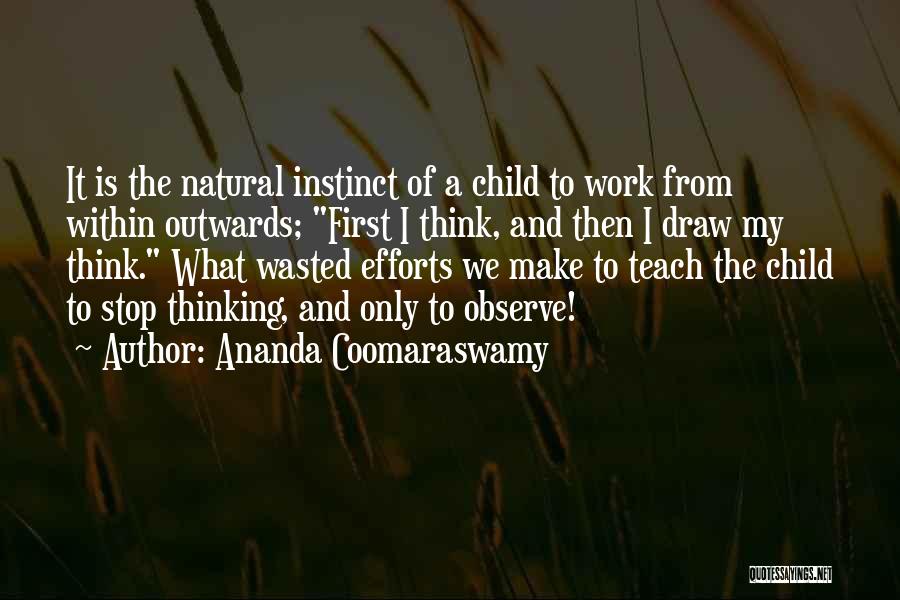
It is the natural instinct of a child to work from within outwards; "First I think, and then I draw my think." What wasted efforts we make to teach the child to stop thinking, and only to observe! — Ananda Coomaraswamy

Whether we consider Nazi Germany or Abu Ghraib prison, there were many people who observed what was happening and said nothing. At Abu Ghraib, one photo shows two soldiers smiling before a pyramid of naked prisoners while a dozen other soldiers stand around watching passively. If you observe such abuses and don't say, "This is wrong! Stop it!" you give tacit approval to continue. You are part of the silent majority that makes evil deeds more acceptable. — Philip Zimbardo
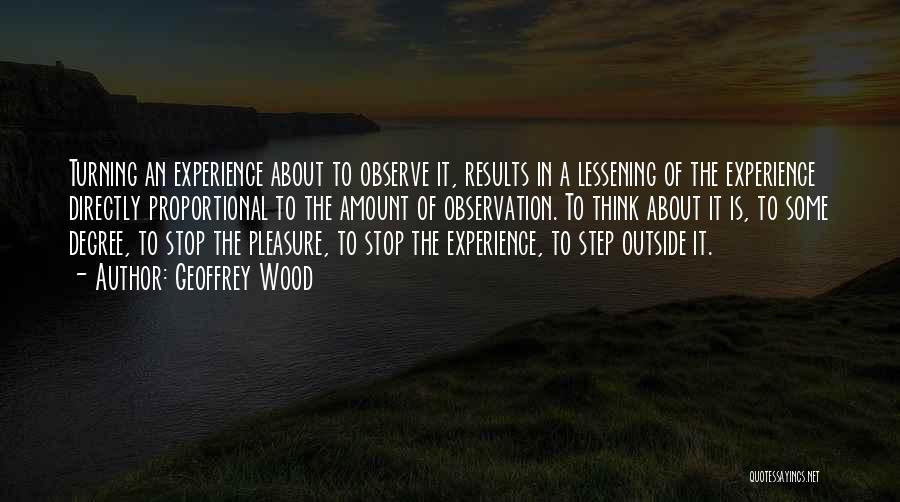
Turning an experience about to observe it, results in a lessening of the experience directly proportional to the amount of observation. To think about it is, to some degree, to stop the pleasure, to stop the experience, to step outside it. — Geoffrey Wood





